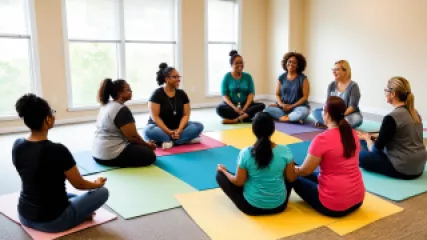How can healing workshops benefit emotional abuse survivors?
Emotional abuse can leave deep scars that can take a long time to heal. Survivors of emotional abuse often struggle with trust, self-esteem, and building healthy boundaries. Although individual therapy sessions can be beneficial, healing workshops specifically designed for abuse survivors can offer a unique and transformative experience.
What are healing workshops for emotional abuse survivors?
Healing workshops for emotional abuse survivors are structured programs that provide a safe and supportive environment for individuals who have experienced emotional trauma. These workshops are facilitated by trained professionals who specialize in trauma healing and offer a variety of therapeutic techniques and activities.
The workshops typically span several days or weeks, allowing participants to immerse themselves in the healing process. They may include a combination of group therapy, individual counseling, experiential exercises, creative arts therapy, meditation and mindfulness practices, and educational sessions.
How can healing workshops benefit emotional abuse survivors?
Healing workshops can offer a range of benefits for emotional abuse survivors. Here are some ways in which these workshops can support the healing journey:
1. Validation and Empowerment:
One of the most significant benefits of healing workshops is the opportunity for survivors to connect with others who have had similar experiences. This sense of validation and understanding can be incredibly empowering, as survivors realize they are not alone in their struggles. Sharing stories, emotions, and insights with others can help survivors reclaim their power and rebuild their self-esteem.
2. Emotional Release:
Healing workshops provide a safe space for survivors to express and release pent-up emotions. Through various therapeutic techniques, such as art therapy, writing exercises, or somatic experiencing, survivors can explore and process their emotions in a supportive environment. This emotional release can be cathartic and contribute to the overall healing process.
3. Learning Coping Strategies:
Workshops often incorporate educational sessions that teach survivors practical coping strategies for dealing with the aftermath of emotional abuse. These strategies may include stress reduction techniques, self-care practices, boundary-setting skills, and communication tools. Learning these valuable skills can empower survivors to navigate their healing journey and establish healthier relationships in the future.
4. Building Healthy Boundaries:
One common struggle for emotional abuse survivors is establishing and maintaining healthy boundaries. Healing workshops often focus on helping participants develop a better understanding of their personal boundaries and how to communicate them effectively. Participants learn to recognize red flags, assert their needs, and create boundaries that protect their emotional well-being.
5. Community and Support:
Healing workshops foster a sense of community and support among participants. Survivors often form deep connections with others who have shared similar experiences, creating a network of support that extends beyond the workshop itself. This community can provide ongoing encouragement, validation, and understanding as survivors continue their healing journey.
Choosing the Right Healing Workshop
When considering attending a healing workshop for emotional abuse survivors, it's essential to choose a program that aligns with your specific needs and preferences. Here are some factors to consider:
- Facilitators and Credentials: Research the facilitators' qualifications and experience in working with trauma and emotional abuse survivors.
- Approach and Techniques: Understand the therapeutic approach and techniques used in the workshop. Different approaches may resonate differently with individuals.
- Duration and Intensity: Consider the duration and intensity of the workshop. Some individuals may prefer shorter, intensive programs, while others may benefit from longer workshops spread over several weeks.
- Reviews and Testimonials: Read reviews and testimonials from past participants to gain insights into their experiences and the workshop's effectiveness.
- Cost and Accessibility: Evaluate the cost and location of the workshop to ensure it fits within your budget and is accessible for you.
By carefully considering these factors and listening to your intuition, you can choose a healing workshop that best supports your healing journey.
Conclusion
Healing workshops for emotional abuse survivors can be transformative experiences that provide validation, empowerment, emotional release, coping strategies, boundary-setting skills, and a supportive community. If you are a survivor of emotional abuse, consider exploring the option of attending a healing workshop to support your healing journey. Remember, healing takes time, but with the right tools and support, it is possible to overcome emotional trauma and build a life filled with joy, self-love, and healthy relationships.






